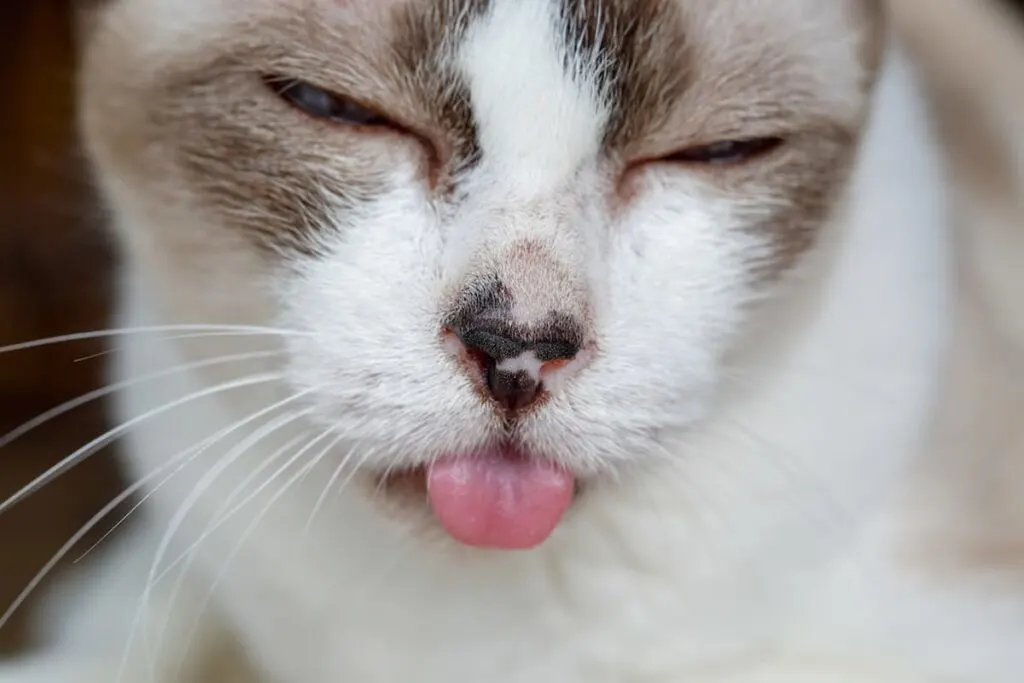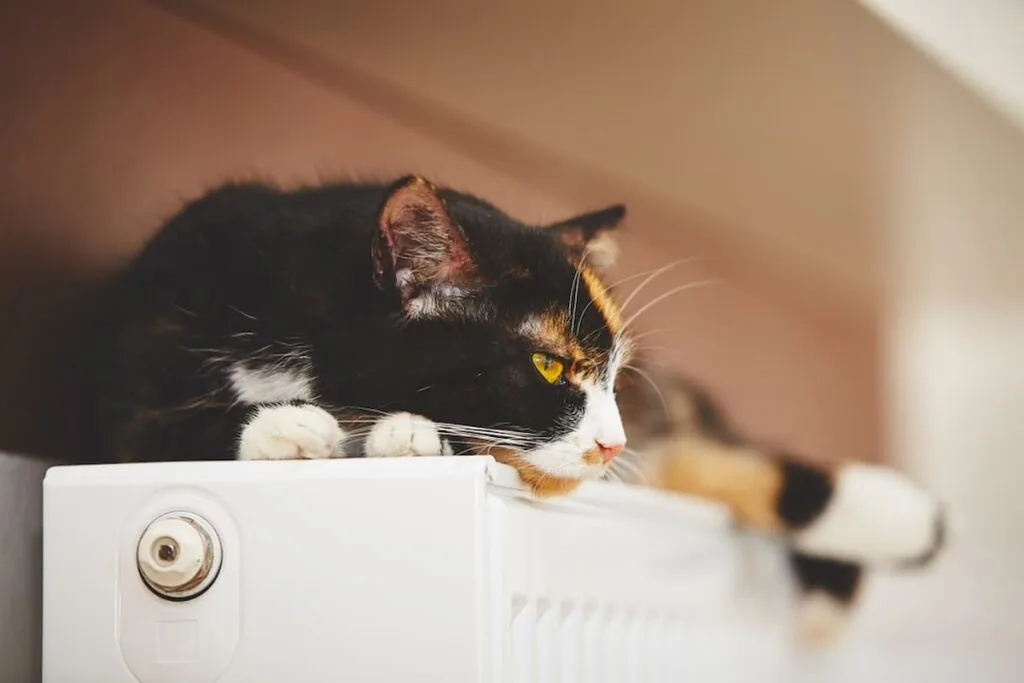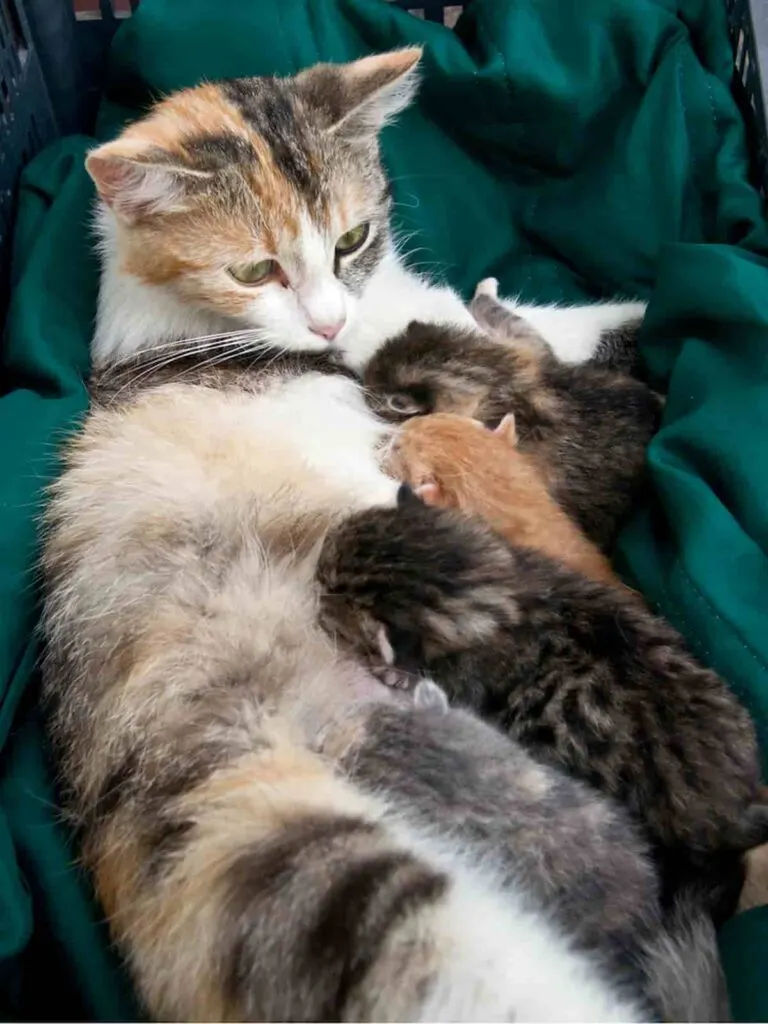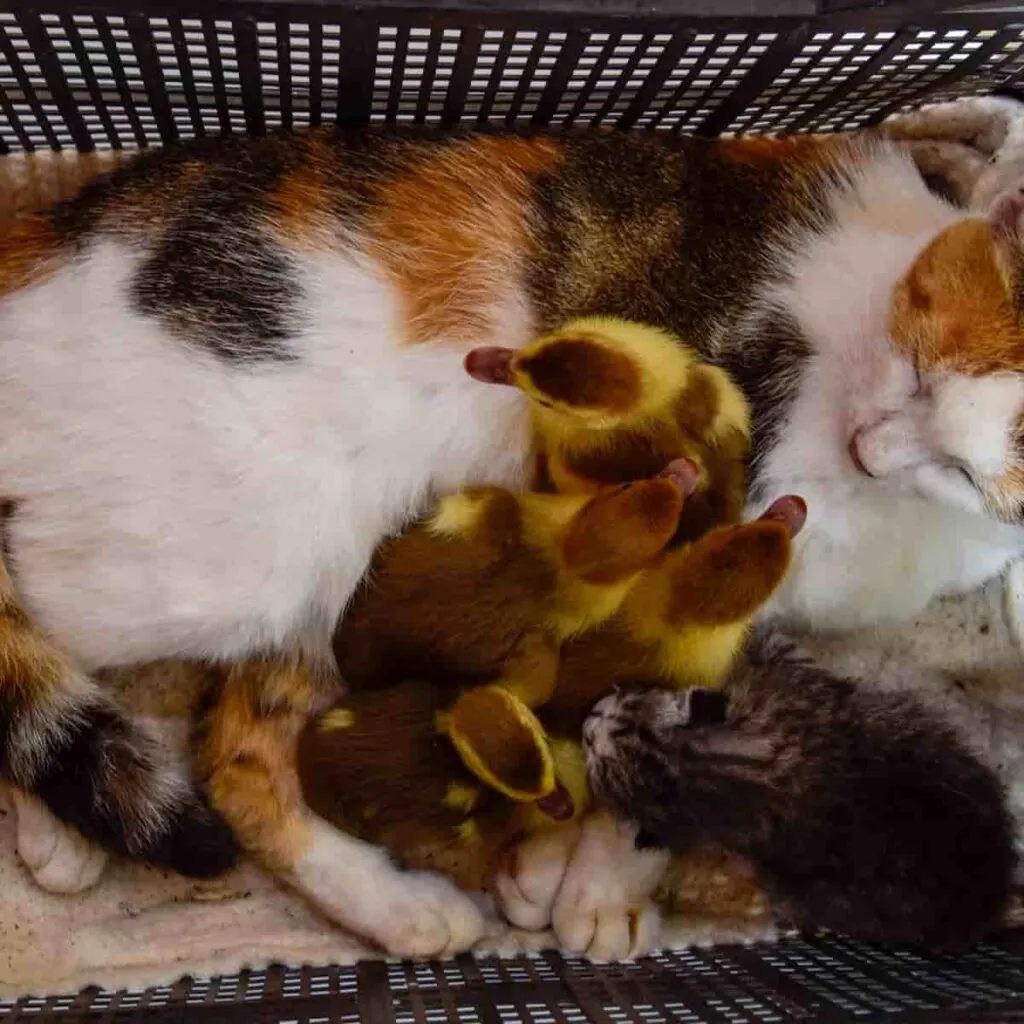When it comes to cat behavior, one common question that arises among pet owners is how soon a cat might go into heat after having kittens. Understanding this aspect of feline reproduction is important not only for the health of the cat but also for managing the cat population.
Most cats will have an estrus cycle (heat cycle) about 4 weeks after weaning their kittens if it is still the breeding season. In fact, a cat can become pregnant again quite quickly, sometimes even while still nursing her kittens.
Read on to learn more about the factors influencing a cat’s heat cycle and how pet owners can manage their cat’s reproductive health.

Understanding Cats in Heat
So, you’re curious about how soon cats can go into heat after having kittens? I’ve found that cats can go back into heat as soon as two weeks after giving birth, although it’s more typical for them to wait until at least four weeks after weaning their kittens if it’s still the breeding season.
For a better understanding, let’s dive deeper into the signs of cats in heat and the frequency of heat cycles.
Signs of Cats in Heat
The signs of a cat in heat can be quite distinct. Here’s what to look for:
| Signs of Cats in Heat |
|---|
| Loud, persistent calling or vocalizations |
| Increased affection and rubbing against objects or people |
| Assuming the mating position (sticking their rear in the air) |
| Excessive grooming of the genital area |
| Possible marking or spraying urine |
Frequency of Heat Cycles
As for the frequency of heat cycles can vary depending on your cat’s age, health, and environmental factors. However, most female cats will experience a heat cycle every two to three weeks if they don’t mate.
Some cats might even have heat cycles more frequently, especially during the breeding season, which typically spans from spring to fall.

Post-Kitten Care
Focusing on both the mother cat and her kittens is essential in post-kitten care. Let’s start by discussing the mother cat’s recovery.
Mother Cat Recovery
After giving birth, a mother cat requires optimal care and nutrition to recuperate her energy and nourish her kittens properly. Most cats will have an estrus cycle (heat cycle) about 4 weeks after weaning their kittens if it is still the breeding season.
It’s essential to provide high-quality food, fresh water, and a clean environment during this time to support her recovery.
Regular vet check-ups are vital to monitor her health and spot any potential complications. Additionally, spaying the mother cat after her kittens are weaned is recommended to prevent any more unwanted pregnancies.
Taking Care of Kittens
Kittens are delicate and require special care to ensure their healthy growth and development. Here are some tips to help you in your kitten-care journey:
| Taking Care of Kittens |
|---|
| Nutrition: For the first four weeks of their life, kittens depend on their mother’s milk for nourishment. Between 4-8 weeks, you can gradually introduce them to wet kitten food mixed with water or kitten milk replacer. |
| Vaccinations: Kittens need to be vaccinated against common feline diseases starting around 6-8 weeks of age. Consult your veterinarian for a proper vaccination schedule and necessary booster shots. |
| Socialization: Start socializing kittens once they’re about 2-3 weeks old. Gentle handling, exposure to different people and other pets, and introducing various household sounds can positively impact their behavior and help them become well-adjusted adults. |
| Litter Training: Kittens usually learn litter box habits from their mother. However, you can encourage this behavior by providing a shallow litter box with fine-grain, unscented litter and placing the kittens in the box after their meals. |
Remember, kitten care can be a daunting task, but it is also a rewarding experience. With some patience, love, and guidance from your veterinarian, you’ll help these little ones grow into happy, healthy adult cats.

Returning to Heat
As a cat owner, it’s important to be aware of when a feline friend might go into heat after giving birth. This helps you plan for her well-being and avoid any unwanted pregnancies.
Factors Affecting Heat Cycles
Various factors can influence the heat cycles in cats, such as:
- Breeding season: Cats generally go into heat during the breeding season, which is in the warmer months of the year. This is the most common time for cats to go into heat after giving birth.
- Individual biology: Each cat is unique in terms of their biology, and this can play a role in determining when your cat might go into heat after having kittens.
- Nutrition: A well-nourished cat may recover more quickly after giving birth and enter the next heat cycle sooner than a cat with inadequate nutrition.
Being informed about your cat’s heat cycles can help you take better care of her and ensure her overall well-being.

Preventing Pregnancy
If you’re afraid your cat may go into heat again, there’s a few things you can do to help prevent future pregnancies.
Spaying Your Cat
One of the most effective ways to prevent your cat from going into heat or getting pregnant after having kittens is to have her spayed. Spaying is a surgical procedure that removes a female cat’s ovaries and uterus, preventing pregnancies and eliminating heat cycles.
It is generally recommended to spay your cat before her first heat cycle, which can occur as early as 4 months of age. However, it’s never too late to spay an adult cat. After giving birth and weaning her kittens, discuss spaying options with your veterinarian.
Managing Outdoor Cats
If you have an outdoor cat, it’s essential to take some extra steps to prevent unwanted pregnancies. Start by ensuring that she is spayed before allowing her outside. This helps reduce the chances of her going into heat and becoming pregnant.
Also, consider limiting your cat’s time outdoors, especially during the breeding season. Keeping your cat indoors during the evening hours, when most mating activity occurs, can also help prevent pregnancies.

My name is James, and welcome to FAQCats!
Along with our team of cat owners, expert pet enthusiasts, and pet professionals, we aim to write engaging helpful, engaging content about cats. At FAQCats we strive to provide content that’s accurate and fun to read. Our team writes about everything related to cats; even the most complex of topics. Through extensive research and caring for our own fur-pals, we’re able to provide something cat owners worldwide will love. Have a look around, and leave us feedback anytime!

